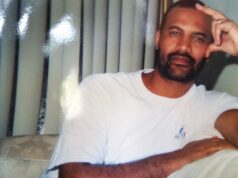What a difference a year makes?
The rule of law crushed to earth for 27 years rose up in Ethiopia in 2018.
If someone would have told me in the first week of 2018 that I would be writing in earnest about the rule of law in the first week of 2019, I would have rolled my eyes with disdain.
Very few believed 2018 would be the end of TPLF thug-rule in Ethiopia.
But the writing was on the wall for all to see.
In February 2013, I predicted, “Meles and his worshipers have profoundly troubled the Ethiopian house and they shall inherit the wind!”
By 2015, I was certain the TPLF thug-rule game was over and done.
In March of that year, I wrote:
I BELIEVE THE T-TPLF LEADERS KNOW WITH ABSOLUTE CERTAINTY THAT THEY ARE SITTING ON A POWDER KEG. AS I HAVE WRITTEN PREVIOUSLY, THE T-TPLF HAS BUILT ITS CASTLES IN THE SAND. THE ONLY QUESTION IS WHETHER THOSE CASTLES WILL BE SWEPT UP BY A TIDAL WAVE OF DEEP PUBLIC DISCONTENT OR BLOWN AWAY BY THE TORNADIC WIND OF THE PEOPLE’S FURY. IN EITHER CASE, THE T-TPLF WILL BE VACUUMED AND DEPOSITED IN THE DUSTBIN OF HISTORY.
In December 2015, I wrote a commentary entitled, The “End of the Story” for the T-TPLF in Ethiopia.
The TPLF laughed at me and said, “Al Mariam is ignorant of the underlying factors of TPLF’s staying power and predicts state collapse on every small and big occasion.”
In 2018, a tidal wave of civil disobedience and resistance led by Ethiopia’s Cheetahs (young people) finally put TPLF thug-rule in the trash bin of history.
Who’s laughing now, TPLF?
Today, a handful of thugtators are holed up in self-imposed garrison prisons hoping to evade the long arm of the law.
They pipe dream of the day they can return to power as they try to wreak havoc throughout the country.
They will return to power when hell freezes over and the Devil goes ice skating.
But the transition from thug-rule to the rule of law has always been a critical concern for me. I articulated that concern in my April 2012 commentary.
Now, we must move from concern to action and transform 27-years of thug-rule into civilized rule of law.
As I reflect on 2018 and all of the changes that have taken place, I recall the opening words of Charles Dickens in A Tale of Two Cities. “It was the best of times, it was the worst of times, it was the age of wisdom, it was the age of foolishness, it was the epoch of belief, it was the epoch of incredulity, it was the season of Light, it was the season of Darkness, it was the spring of hope, it was the winter of despair, we had everything before us, we had nothing before us, we were all going direct to heaven, we were all going direct the other way…”
There were two Ethiopias in 2018.
In the first quarter of 2018, we saw the worst of times in Ethiopia.
We were sweltering under the rule of a small group of predatory thugs and everyone was convinced Ethiopia was going to hell (civil war) in hand basket.
In the second half of 2018, we began to see the first sunlight of the best of times in Ethiopia and the final sunset on thug-rule.
We learned what it means to live under the rule of law.
We even saw the motley crew of senile old fools invited to to enter the country with dignity only to find these boneheads talking trash about how they can take over power through terrorism.
These buffoons declared, “Damn the rule of law. We will take power by the rule of AK47s.”
But no ignorant old fools, unreformed terrorists and young empty barrels who think they can “capture power in 24 hours” will be able to turn the tide of rule of law, democracy and human rights in Ethiopia.
But they have the right to pipe dream, indulge in delusions of grandeur.
For me, 2019 shall be the “Year of the Rule of Law in Ethiopia” as 2018 was the “Year of Ethiopiawinet”.
On the newly established website of the Office of the Prime Minster of Ethiopia, the rule of law is announced as Job #1.
Over the past nine months, H.E. Prime Minster Dr. Abiy Ahmed has demonstrated, to the wonderment of the world, his unwavering commitment to the rule of law in words and in action.
He has emptied the country’s prisons of all political prisoners who had been held illegally for years.
For the first time since 2004, there are NO journalists in prison in Ethiopia.
Practically every day, in one form or another, PM Abiy has been preaching the gospel of the rule of law in Ethiopia.
Under PM Abiy’s leadership, the “Government of Ethiopia is undertaking a comprehensive reform program with a strong commitment to uphold rule of law and build a robust democratic system.”
The notorious anti-terrorism and civil society proclamations are currently under complete revision “ to ensure respect for fundamental rights, rule of law and democracy.”
I join PM Abiy in his efforts to institutionalize the rule of law in Ethiopia, and call on all Ethiopians to join in this monumental effort by engaging in informed exchange of views, ideas and opinions.
Many Ethiopians have asked me, “What is the rule of law? What does it mean?”
I ask myself if I should start by expounding on Corpus Juris Civilis, “without doubt the most important and influential collection of secular legal materials that the world has ever known”?
Perhaps the Magna Carta Libertatum? The U.S. Constitution? The Universal Declaration of Human Rights?
Blackstone’s Commentaries?
Are these “too Western” for Ethiopians?
How about the Kibra Negest?
Perhaps the “living customary laws” of Africa?
None of them will do.
People want simple, straightforward answers.
To those who ask, “What does rule of law mean in Ethiopia?”, I ask them to think about their lives under thug-rule over the past 27 years.
What is thug-rule?
When an innocent citizen is jailed, tortured and left to rot because that citizen proclaimed his/her Ethiopiawinet, that is thug-rule.
When a citizen is denied the equal protection of the laws because of his ethnic affiliation, that is thug rule.
When a citizen is denied job, educational and business opportunities because s/he does not have the right ethnic credentials, that is thug-rule.
When a nation’s treasury is looted for the benefit of the few in power and their cronies, that is thug-rule.
When a nation of proud people who have defended their freedom for thousands of years are subjected to a life of humiliation, subjugation and subordination under the rule of a Mafia-style gang of bush thugs, that is thug rule.
By the way, the English word “thug” comes from the Hindi word “thag” which means “con man”.
In India “Thugees”, well-organized criminal gangs, robbed and murdered unsuspecting travelers over a century ago.
In 1991, a small cabal of arrogant and ignorant thugees came out of the bush and imposed the “rule of the bush” (law of the jungle) on Ethiopia and began a campaign of killing, looting and plundering.
That is why I coined a new English word to describe the TPLF as a “thugtatorship”.
To those Ethiopians who ask me, “What is the rule of law?”, I simply tell them to compare their lives over the past nine months to the previous 27 years of tears.
That’s it!
Why I am a stickler for the rule of law…
Philosophers and scholars have argued for millennia whether some “people are born evil”.
Are those who commit atrocities, torture innocents, inflict unspeakable suffering and horror on their fellow human beings and bankrupt the public treasury “born evil”?
Is there a mutant “evil gene” that turns ordinary humans into conscienceless monsters?
I don’t know, but I believe I was born with the “rule of law gene”.
The expression of that gene in me compels me to stand up for the underdog, always.
In my 2014 New Year’s Resolution, I made a full confession:
IT IS PART OF MY CORE BELIEF THAT I MUST CARE FOR THE WELFARE OF OTHERS LESS FORTUNATE THAN MYSELF. THAT IS THE MAJOR REASON I DECIDED TO BECOME A LAWYER AFTER I HAD ACHIEVED MY PRINCIPAL ACADEMIC OBJECTIVE. I AM ALWAYS FOR THE UNDERDOG. IT COULD BE THE HOMELESS VETERAN AT A FREEWAY EXIT ASKING FOR SPARE CHANGE OR THE THRONGS OF YOUNG PEOPLE I HAVE NEVER MET IN ETHIOPIA WHO ARE UNJUSTLY IMPRISONED MERELY BECAUSE THEY SPOKE THEIR MINDS OR EXPRESSED THEIR OPINIONS IN A PUBLICATION. I GUESS I WAS BORN THAT WAY. THAT IS WHY I NEVER GET DISCOURAGED EVEN IF OTHERS BELIEVE MY EFFORTS ARE ULTIMATELY IN VAIN.
In 2016, I wondered out loud if there is something wrong with me because I am so committed to the rule of law and protecting the underdog, the weak, the defenseless, the helpless, the powerless.
SHAKESPEARE WROTE IN THE TWELFTH NIGHT, ‘SOME ARE BORN GREAT, SOME ACHIEVE GREATNESS, AND SOME HAVE GREATNESS THRUST UPON THEM.’ I WONDER IF SHAKESPEARE CONSIDERED WHETHER SOME PEOPLE ARE ALSO BORN DOOMED TO ALWAYS DEFEND THE UNDERDOGS, CONDEMNED TO BARK AND YAP TRUTH TO THE UBER-DOGS.
Now, I am too old to change and learn new tricks.
I still root for the underdog. Could it be because I can relate to them on a visceral level?
The difference between me and those who do not believe in the rule of law can be expressed simply as follows.
They believe in the principle, “Might makes right.”
I believe in the principle, “Right makes might,” just like Abraham Lincoln expressed it in his Cooper Union Address in 1860 defending the role of the federal government in eliminating slavery. “LET US HAVE FAITH THAT RIGHT MAKES MIGHT, AND IN THAT FAITH, LET US, TO THE END, DARE TO DO OUR DUTY AS WE UNDERSTAND IT.”
For the last 13 years, I have dared to do my duty for Ethiopia as I understand it; and I shall stand with and by Abiy Ahmed, without flinching or wavering, as he toils day and night to usher in and institutionalize the rule of law in Ethiopia.
The aim of the series on the rule of law
The aim of the planned series of commentaries is to share my reflections on the rule of law and Ethiopia’s democratic transition.
Of course, I have previously written extensively on the rule of law in Ethiopia and the United States.
In 2019, I aim to energetically promote and defend the principle of rule of law in Ethiopia in a variety of ways.
Why?
First, I consider myself a public intellectual in the mold of Edward Said: “The intellectual is an individual endowed with a faculty for representing, embodying, articulating a message, a view, an attitude, philosophy or opinion to, as well as for, a public, in public.”
Second, as a practitioner and teacher of American constitutional law and someone who has taken the time to study Ethiopian constitutional, criminal and civil laws over one-half century, I believe I can offer some informed views and opinions on Ethiopia’s constitutional future.
Third, I believe fresh and creative ideas on Ethiopia’s transition from the rule of a small group of thugs to the rule of law is very much needed.
Fourth, I have a moral obligation to respond to PM Abiy’s call to Diaspora Ethiopians to be fully involved in the making of the New Ethiopia.
In furtherance of the Ethiopian public interest, I plan to provide throughout the year public education on the “rule of law” using a variety of media.
I doing so, I aim to accomplish a number of objectives: 1) provide a broader understanding of the subject to the Ethiopian public, 2) challenge prevailing conceptions of “Ethiopian constitutionalism” (an exercise in futility given the indisputable fact that Ethiopia’s “constitution” has been trashed by the very people who wrote it, 3) present alternative constitutional arguments and designs to replace the current “constitution” written by and for a small group of power hungry thugs and criminals against humanity, and 4) provoke intellectual debate and promote cross-fertilization of constitutional ideas .
I hope 2019 will be different and there will be a great many learned men and women who will join the debate and discussion on the rule of law in Ethiopia.
I hope that is not a pipe dream on my part.
Since June 2010, I have been asking, “Where have the Ethiopian intellectuals gone?”
I still don’t know because I don’t see many of them engaging the issues of the day. They seem to be watching on the sidelines as stunned spectators.
If they go AWOL as they have in the past, it does not matter to me.
I learned long ago that “it is easy to stand with the crowd. It takes courage to stand alone.”
It is better to stand alone that to stand with people without backbone, integrity, courage, audacity, endurance, tenacity, grit, strength of character and an indomitable will.
As we begin a brand-new chapter – better yet, as we begin to write a new book about the New Ethiopia under the rule of law, we need Ethiopians with the courage of their convictions to stand up and be counted.
Stand up and be counted on the side of the rule of law.
In launching my series on the rule of law, I hope to attract a core group of open-minded, informed, dispassionate, courageous Ethiopians with unwavering dedication to the institutionalization of the rule of law in Ethiopia.
I am sure there will be those who will laugh at me, “Here he goes again. Dreaming the impossible.”
The fact of the matter is that I have never believed in dreaming the possible, only the impossible.
When they said it is impossible to end thug-rule in Ethiopia without the power of the sword, I declared in 2006, we shall become victorious by the power of the word.
It took 13 long years for me, but I am blessed to see the victory of the word over the sword in Ethiopia.
Abiy Ahmed won the hearts and minds of the Ethiopian people with the power of his words, without once raising the sword.
That is what the rule of law is all about.
The power of the word supreme over the power of the sword.
As Dr. King said, “That old law about ‘an eye for an eye’ leaves everybody blind.
If Ethiopians choose the sword over the word, we will have a nation of blind people.
If we do not learn from our history of the past several decades, we shall be doomed to repeat it.
We must open our eyes and look at reach other through the lens of the rule of law.
When we have just and fair laws, there will be no bloodshed, no need for revenge, retribution and reprisals, no collective punishment and no guilt by association.
Only redress for wrongs under the rule of law.
With the rule of law ascendant, I know Ethiopia’s best days are just around the corner.
I made that announcement in December 2013 when I reassured Ethiopia’s youth to “be optimistic and determined in creating their Beloved Ethiopian Community because Ethiopia’s best days are yet to come.”
“I’d give the Devil benefit of law…”
I have often been criticized for defending the rights of those with whom I not only disagree but despise.
When I defended Meles Zenawi’s right to speak at Columbia University in September 2010, I was roundly criticized.
They said, “How could you defend the ‘monster’ who had denied millions of Ethiopians the right to speak?” Some even called me a “sellout”.
I insisted I was not defending a “monster” but the universal principle of free expression.
My defense was simple, “If we don’t believe in freedom of expression for people we despise, we don’t believe in it at all.”
My position is no different now.
Today, I defend the rights of those individuals who are currently in custody on a variety of human rights and corruption charges.
Many think these suspects are the “devil incarnate”. I have even been urged to write condemnatory commentaries and whip up negative public sentiments against them.
I will never do that.
To those who wish to criticize me for defending “the devil incarnates” and not speaking publicly against them, I will them what I told those who criticized me when I defended Meles Zenawi’s right to freely express himself.
If you don’t believe in a fair trial – rule of law — for those you despise, then you do not believe in fair trial at all.
As far as I am concerned, those in custody today are presumed innocent until proven guilty.
A fair trial is the litmus test for any conception of the rule of law.
Someone more eloquent than I has said it all.
“I’d give the devil the benefit of law…”
I invite you to watch this 3-minute dramatic video of a historical figure I admire and try to emulate speaking on the rule of law.
Click on this link: https://www.youtube.com/watch?v=WMqReTJkjjg
TO BE CONTINUED…
ETHIOPIAWINET AND THE RULE OF LAW FOREVER.

























